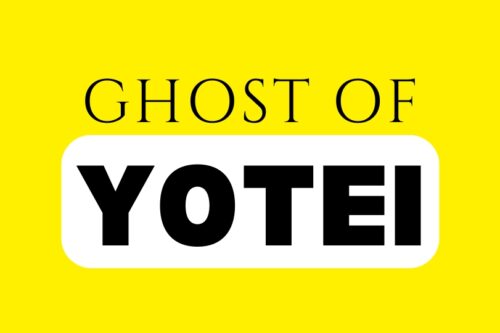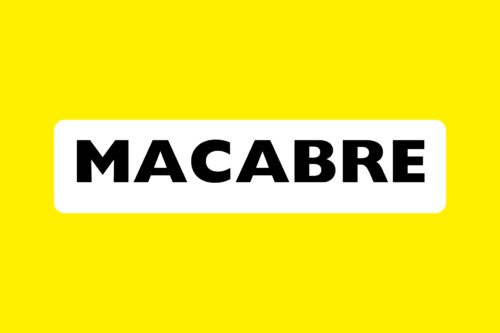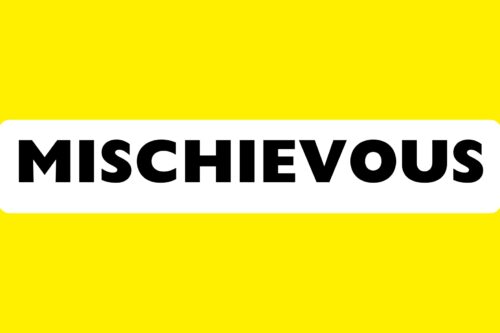Looking for how to pronounce entrepreneur correctly? Here is the ultimate guide to learning the pronunciation of entrepreneur correctly with the help of audio, videos, and easy step-by-step guides.
How To Pronounce entrepreneur In American, British And French? 🇺🇸 🇬🇧 🇫🇷
The correct pronunciation of “entrepreneur” in American English is “ahn-truh-pruh-NUR” which should be pronounced together and fast without a break. 😊👍🏻
| Language / Accent | Description | Audio Pronunciation |
|---|---|---|
| 🇺🇸 US English | Entrepreneur Pronunciation in American English | |
| 🇬🇧 UK English | Entrepreneur Pronunciation in British English | |
| 🇫🇷 French | Entrepreneur Pronunciation in French |
Video Pronunciation of entrepreneur
How to Pronounce entrepreneur in English?
Here is a table providing the pronunciation of the word entrepreneur in both IPA (International Phonetic Alphabet) and English:
| Word | IPA Pronunciation | English Pronunciation |
|---|---|---|
| entrepreneur | [ˌɑntrəprəˈnɝː] | ahn-truh-pruh-NUR |
Audio Pronunciation of entrepreneur 🇺🇸 🇬🇧 🇫🇷
In this section, we are going to listen and understand correct pronunciation of entrepreneur in American English, British English and French with the help of audio pronunciations.
🇺🇸 How to Pronounce entrepreneur in American English?
Here is the audio pronunciation of entrepreneur in American English:
American English Pronunciation
In American English, this word (entrepreneur) is pronounced as:
🇬🇧 How to Pronounce entrepreneur in UK English?
Here is the audio pronunciation of entrepreneur in British English:
British English Pronunciation
In British English, this word (entrepreneur) is pronounced as:
How to Say entrepreneur in Different Languages?
🇫🇷 How to Pronounce entrepreneur in French
French Pronunciation
In French, this word (entrepreneur) is pronounced as:
Who is an entrepreneur?
An entrepreneur is a person who starts, organizes, and operates a business or businesses, taking on financial risks in the hope of profit.
Origin, Meaning and Definition of Entrepreneur
| Origin | Meaning |
|---|---|
| French | Derived from the French word ‘entreprendre’, meaning ‘to undertake.’ In English, it refers to a person who organizes, manages, and assumes the risks of a business or enterprise. |
The word “entrepreneur” has its origins in the French term ‘entreprendre,’ which means ‘to undertake.’ In modern English, it commonly refers to:
- A business leader: An entrepreneur is someone who starts and operates a business, often taking financial risks to do so. For example, “She is a successful entrepreneur who founded her own tech company.”
- Innovator: Entrepreneurs are often seen as innovators who introduce new ideas, products, or services to the market.
Understanding these definitions provides essential context for the word’s use in various discussions.
Pronunciation Variations
There are regional variations in how “entrepreneur” is pronounced. In American English, it is commonly pronounced as /ˌɑːntrəprəˈnɜːr/, while some British speakers may pronounce it with a softer ending. Recognizing these variations can enhance understanding in international business contexts.
Common Mispronunciations
Many people mispronounce “entrepreneur” as “en-trep-neur” or “on-tre-pre-nur.” These errors often originate from confusion over the syllable structure and stress patterns in the word. Mispronunciations can affect clarity in communication, especially in professional settings.
Correct Pronunciation
The correct pronunciation of “entrepreneur” is /ˌɑːntrəprəˈnɜːr/ (IPA). Here’s a breakdown of how to pronounce it:
- Syllables: The word consists of five syllables: “on,” “tre,” “pre,” “neur.”
- Phonetics:
- The first syllable sounds like “ahn.”
- The second syllable is pronounced as “truh.”
- The third syllable sounds like “pruh.”
- The last syllable sounds like “NUR.”
To practice, say it slowly: “ahn-truh-pruh-NUR” and then gradually increase your speed until you can say it smoothly.
Entrepreneur Pronunciation Guide: 3 Easy Steps
Here are the pronunciation tips for the word “entrepreneur” in three short steps:
- Start with the sound “Ahn” as in “On.”
- Add “truh” as in “Truck.”
- Combine them to say “Ahn-truh-pruh-NUR.”
Remember to emphasize the last syllable “NUR.”
Usage History
The term “entrepreneur” has a rich history:
- Etymology: The word originated from the French ‘entreprendre’ in the early 19th century, evolving into its current English form.
- Century of Use: The usage of “entrepreneur” increased significantly during the Industrial Revolution when businesses began to flourish.
- Literary Context: Over time, “entrepreneur” has appeared frequently in texts discussing business innovation, economic growth, and leadership.
Understanding the historical context of “entrepreneur” enhances its relevance in discussions about business and economic development.
Entrepreneur Fundamental Information Table
| Entrepreneur Details | Answer |
|---|---|
| Word and Type | Entrepreneur, A noun |
| Origin | The word “Entrepreneur” comes from French ‘entreprendre’, meaning ‘to undertake.’ |
| Entrepreneur Pronunciation | The pronunciation of “Entrepreneur” is /ˌɑːntrəprəˈnɜːr/. |
| International Phonetic Alphabet | /ˌɑːntrəprəˈnɜːr/ |
| History | Historically used to refer to individuals who take on business ventures and risks. |
| Synonyms | Business owner, founder, innovator |
| Antonyms | Employee, follower |
| Usage | Commonly used in discussions about business and innovation. |
| Meaning and Definition | An entrepreneur is a person who organizes and manages a business venture, taking on financial risks. |
| Cultural References | Often referenced in discussions about economic development and innovation. |
| Connotations | Innovative, risk-taker, leader |
| Examples and Usages | Example sentence: “The entrepreneur launched a new product that revolutionized the market.” |
| Fictional Quote | “The entrepreneur saw opportunities where others saw obstacles.” |
Famous Books and Cinemas Featuring Entrepreneur
The term “entrepreneur” has been featured in various literary works and films. Here are a few notable examples:
Books:
- “The Lean Startup” by Eric Ries: This book discusses innovative startup methodologies and emphasizes the role of entrepreneurs in creating successful businesses.
- “Zero to One” by Peter Thiel: An influential book about building startups that create new technologies, focusing on entrepreneurial thinking.
Cinemas:
- “The Social Network”: This film portrays the story of Mark Zuckerberg and his entrepreneurial journey in founding Facebook.
- “Joy”: A biographical film that follows Joy Mangano’s rise as an entrepreneur and inventor.
These examples highlight how the concept of entrepreneurship is often portrayed in narratives exploring innovation and business challenges.
Notable Personalities Associated with Entrepreneur
Several influential figures are often referred to as entrepreneurs due to their groundbreaking contributions:
- Elon Musk: CEO of Tesla and SpaceX, known for his innovative approaches to technology and transportation.
- Oprah Winfrey: A media mogul who transformed the television industry through her entrepreneurial ventures and influence.
- Richard Branson: Founder of the Virgin Group, recognized for his adventurous spirit and diverse business pursuits.
These individuals exemplify how entrepreneurship transcends mere business activity; it embodies vision, risk-taking, and impact on society.
Pronunciation Variations
In English, pronunciations can vary by region. While the standard pronunciation of “entrepreneur” is /ˌɑːntrəprəˈnɜːr/, some may articulate it differently based on their dialects. Understanding these variations can add depth to your knowledge of the word and help you adapt your speech depending on your audience.
Practice Exercises
To master the pronunciation of “entrepreneur,” consider these practice exercises:
- Repeating Phonetics: Say each syllable slowly: “Ahn,” “truh,” “pruh,” “NUR,” until you feel comfortable combining them into “entrepreneur.”
- Tongue Twisters: Create sentences that include “entrepreneur,” such as “The entrepreneur established an innovative startup.”
- Recording Yourself: Use your phone or computer to record your pronunciation. Play it back to assess clarity and accuracy.
Regular practice will reinforce your pronunciation skills and build confidence using the word in conversation.
Related Commonly Mispronounced Words
- Entre
- Preneur
- Ontrapreneur
- Interpreneur
- Proneur
FAQs About Pronunciation
What does entrepreneur mean?
An entrepreneur is a person who starts and manages a business, taking on financial risks to earn profit. They often innovate by introducing new products or services to the market. This role is crucial for economic growth and job creation.
How do you pronounce entrepreneur correctly?
The correct pronunciation of “entrepreneur” is /ˌɑːntrəprəˈnɜːr/. Break it down into syllables: “ahn-truh-pruh-NUR.” Emphasize the last syllable to ensure clarity when speaking.
Why is the pronunciation of entrepreneur challenging?
The pronunciation can be challenging due to its five syllables and French origin. Many English speakers struggle with the syllable stress and vowel sounds that differ from typical English words. Practicing slowly can improve accuracy over time.
Do entrepreneurs take risks?
Yes, entrepreneurs often take significant financial and personal risks when starting their businesses. They invest their resources with the hope of achieving success and profitability. This willingness to take risks is a key characteristic of successful entrepreneurs.
Are all entrepreneurs wealthy?
Not all entrepreneurs are wealthy; many start with limited resources. Success can come over time through hard work, innovation, and persistence. Some entrepreneurs may initially face challenges before achieving financial stability.
Is entrepreneur a common profession?
Yes, entrepreneurship is a common profession worldwide. It plays a vital role in driving innovation, creating jobs, and contributing to economic growth across various industries. Many people aspire to become entrepreneurs for independence and creative expression.
Who can be an entrepreneur?
Anyone with a viable business idea and determination can become an entrepreneur. It requires creativity, resilience, and a willingness to learn from failures. People from diverse backgrounds can succeed in entrepreneurship with dedication.
What skills do entrepreneurs need?
Successful entrepreneurs need skills such as leadership, problem-solving, financial management, and communication. Adaptability and networking abilities are also crucial for navigating challenges and building relationships within their industry.
In summary, understanding how to pronounce “entrepreneur” correctly can enhance communication and help convey meanings accurately. By practicing regularly and engaging with available resources online, you can confidently use “entrepreneur” in conversations.
Feel free to share your thoughts or experiences related to this word in the comments below!
Other Commonly Mispronounced “Entrepreneur” Terms:
- Entrepreneurship
- Entrepreneurial
- Entrepreneurs
- Entrepreneurially








Leave a Reply